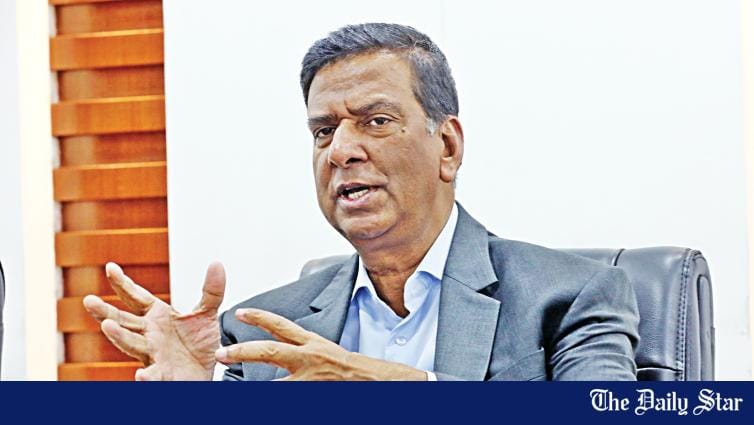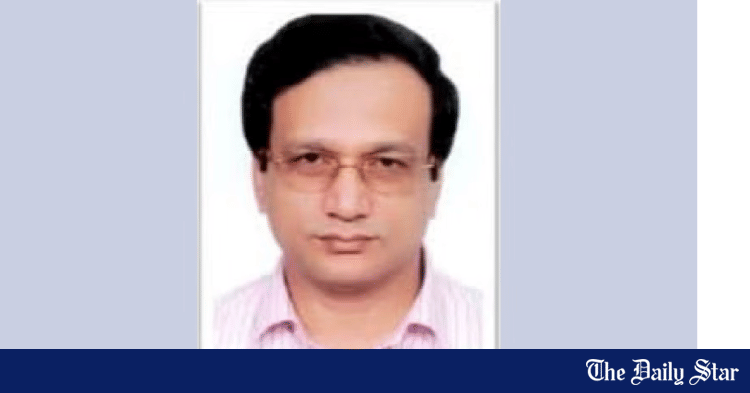Saif
Senior Member
- Joined
- Jan 24, 2024
- Messages
- 16,880
- Likes
- 8,153
- Nation

- Residence

- Axis Group


ACC conducts drives at Chattogram WASA
A team from the Anti-Corruption Commission (ACC) on Thursday conducted an operation at the Chattogram Water and Sewerage Supply Authority (CWASA) office and quizzed relevant officials regarding allegations of irregularities in its sewerage project. A 4-member team led by Assistant Director of ACC&
ACC conducts drives at Chattogram WASA
BSS
Published :
Feb 20, 2025 21:47
Updated :
Feb 20, 2025 21:47

A team from the Anti-Corruption Commission (ACC) on Thursday conducted an operation at the Chattogram Water and Sewerage Supply Authority (CWASA) office and quizzed relevant officials regarding allegations of irregularities in its sewerage project.
A 4-member team led by Assistant Director of ACC’s Chattogram Integrated Office-1 Sayed Mohammad Imran conducted the raid on Thursday afternoon and quizzed the CWASA Secretary and Project Director of Tk 38.08 billion on-going sewerage scheme.
While talking to journalists after the drive, ACC officials said that they had visited the CWASA office after physically inspecting the project site and talked to the concerned director of the project as part of the probe into the allegations of irregularities at a treatment plant of the sewerage project at Halishahar in the city.
ACC assistant director Imran said that the newly built treatment plant had a crack, and it was guessed that the crack was the result of using low quality materials.
“We have found many cracks during on-site inspection today morning and talked with the concerned officials, including the secretary and project director, as part of our investigation. The director admitted his knowledge on the cracks,” he said.
“The project director informed us that they had discussed with the project consulting firm, and the chemicals that will be used to seal the cracks have been sent for testing,” ACC officials said.
ACC official Syed Mohammad Imran said, “There is no way to apprehend exactly the cause of faults by merely seeing it. Experts in the relevant field can find it out. However, cracks have been seen. This could be due to use of low-quality materials”.
Earlier, a mysterious fire occurred on the third floor of the CWASA building in 2020. It was said that the incident was a staged one to disappear or destroy the documents of corruption and irregularities.
Besides, there are widespread allegations of corruption and irregularities centring on a number of mega projects against former controversial managing director of CWASA A K M Fazlullah.
Out of 10 mega projects undertaken by CWASA during his tenure, work on two is still going on. Over TK 82.57 billion has been spent on eight completed projects, while running two projects are being implemented at a costs of Tk 58.02 billion.
BSS
Published :
Feb 20, 2025 21:47
Updated :
Feb 20, 2025 21:47
A team from the Anti-Corruption Commission (ACC) on Thursday conducted an operation at the Chattogram Water and Sewerage Supply Authority (CWASA) office and quizzed relevant officials regarding allegations of irregularities in its sewerage project.
A 4-member team led by Assistant Director of ACC’s Chattogram Integrated Office-1 Sayed Mohammad Imran conducted the raid on Thursday afternoon and quizzed the CWASA Secretary and Project Director of Tk 38.08 billion on-going sewerage scheme.
While talking to journalists after the drive, ACC officials said that they had visited the CWASA office after physically inspecting the project site and talked to the concerned director of the project as part of the probe into the allegations of irregularities at a treatment plant of the sewerage project at Halishahar in the city.
ACC assistant director Imran said that the newly built treatment plant had a crack, and it was guessed that the crack was the result of using low quality materials.
“We have found many cracks during on-site inspection today morning and talked with the concerned officials, including the secretary and project director, as part of our investigation. The director admitted his knowledge on the cracks,” he said.
“The project director informed us that they had discussed with the project consulting firm, and the chemicals that will be used to seal the cracks have been sent for testing,” ACC officials said.
ACC official Syed Mohammad Imran said, “There is no way to apprehend exactly the cause of faults by merely seeing it. Experts in the relevant field can find it out. However, cracks have been seen. This could be due to use of low-quality materials”.
Earlier, a mysterious fire occurred on the third floor of the CWASA building in 2020. It was said that the incident was a staged one to disappear or destroy the documents of corruption and irregularities.
Besides, there are widespread allegations of corruption and irregularities centring on a number of mega projects against former controversial managing director of CWASA A K M Fazlullah.
Out of 10 mega projects undertaken by CWASA during his tenure, work on two is still going on. Over TK 82.57 billion has been spent on eight completed projects, while running two projects are being implemented at a costs of Tk 58.02 billion.





